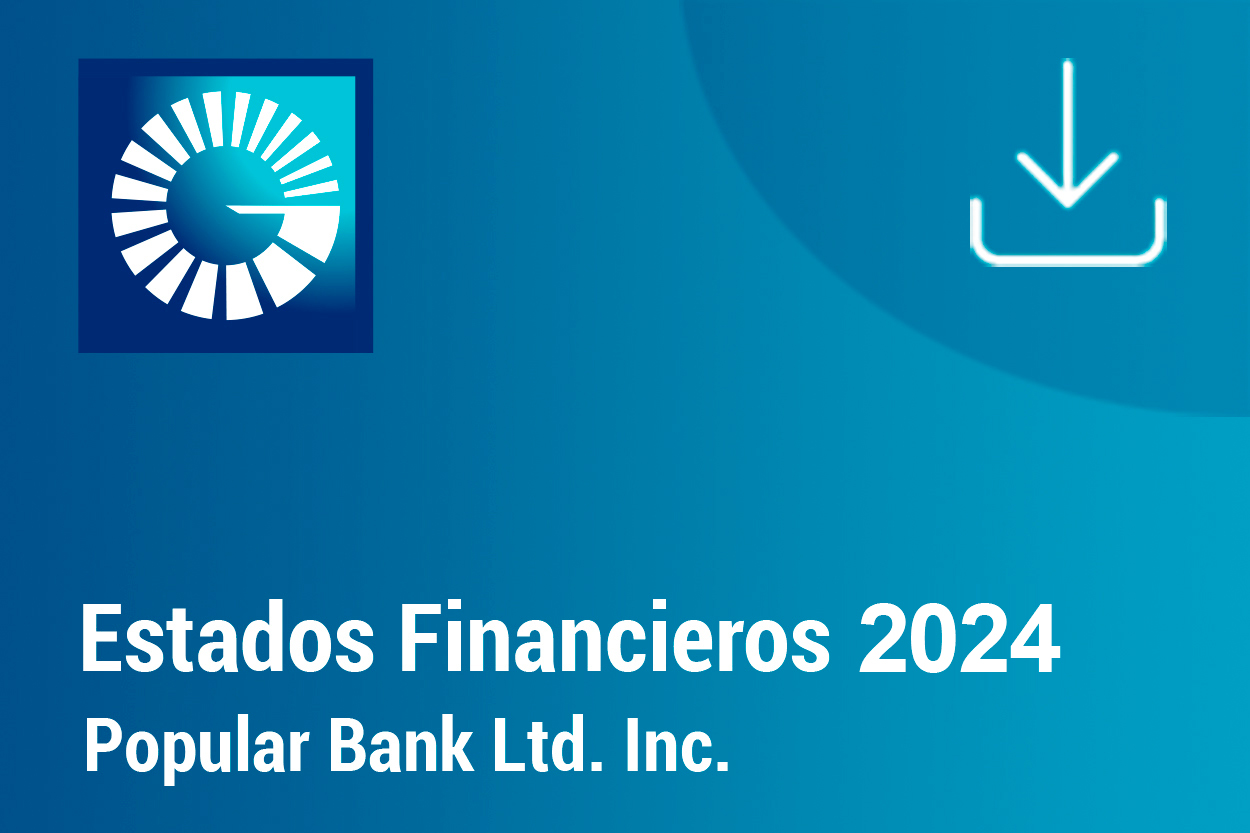Logra tus metas
Apoyamos tus objetivos al ofrecerte mayor seguridad y control con nuestro portafolio de productos.
CUENTAS
Garantiza tu futuro a través de la cuenta ideal para que realices ahorros y transacciones bancarias.

CLÁSICA INTERNACIONAL
Nuestra tarjeta te permite prescindir del efectivo y pagar tus consumos en establecimientos internacionales, afiliados a la red Visa o MasterCard

CUENTA DE AHORRO
Disponibilidad inmediata de fondos por transferencias internas e internacionales
Instructions for the new Internet Banking
Aviso de Privacidad
Pistas de Seguridad
Aprende a proteger tus datos personales con nuestras pistas de seguridad
Instructivos
Guía de seguridad de la información con las mejores prácticas
de uso de nuestros productos financieros
Últimas Publicaciones
Popular Bank
Entre en contacto con nosotros y permítanos dar respuestas eficientes a todas sus necesidades.
Nuestra Ubicación
Aquilino de la Guardia Ave. 47E St.
Torre Banco General Piso # 20
Apartado Postal 0816-00265
Panamá, Rep. de Panamá
¿Necesita comunicarse con nosotros?
Si tiene alguna sugerencia o inquietud
favor contactarnos al teléfono
(507)297.4100-Panamá.
Puede escribirnos al correo electrónico
contactenos@popularbank.com.pa
¿Necesita comunicarse con nosotros?
Sobre Nosotros
Código Swift: BPDOPAPA
Dirección:
Ave. Aquilino de la Guardia Cl. 47E
Torre Banco General Piso # 20
Apartado Postal 0816-00265
Panamá, Rep. de Panamá
Teléfono: (507)297-4100
República de Panamá
Popular Bank
Entidades relacionadas
Informaciones
- Tarifario de Servicios
- ¡Proteja sus datos!
- Días de Fiesta Nacional en Panamá
- FATCA
- Common Reporting Standard
- Tutoriales Banca Digital
- Formularios
- Gobierno Corporativo
- Conócenos
- Preguntas Frecuentes
- Reclamaciones
- Términos y Condiciones de Productos y Servicios – Banca Personal
- Términos y Condiciones de Productos y Servicios – Banca Empresarial

















